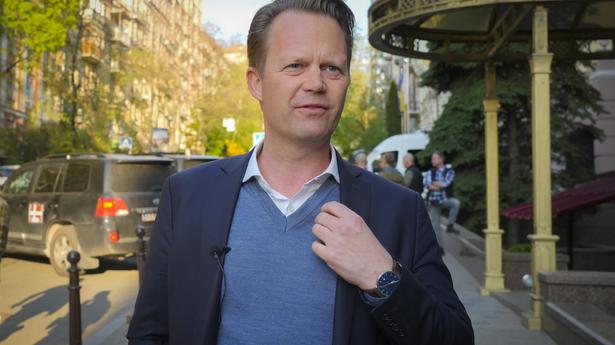
European Union common defence policy | Danish Foreign Minister Jeppe Kofod expects Denmark to be able to join as of July 1
The Hindu
With 100% of the votes counted, 66.9% voted in favour of getting rid of the opt-out while 33.1% were against, according to figures from Statistics Denmark. Voter turnout was 65.76%.
Danish Foreign Minister Jeppe Kofod said on June 2 that he expects Denmark to join the European Union's (EU) common defence policy after two-thirds of voters who cast ballots in a referendum supported abandoning a 30-year-old waiver that kept the EU country out.
There are “a series of formal steps before Denmark can be admitted” to the defence agreement, Mr. Kofod said, including the Danish Parliament giving its approval of the referendum's result. The Minister said he expects Denmark to be able to join as of July 1.
With 100% of the votes counted, 66.9% voted in favour of getting rid of the opt-out while 33.1% were against, according to figures from Statistics Denmark. Voter turnout was 65.76%.
Danish Prime Minister Mette Frederiksen said the results were “a clear signal” to Russian President Vladimir Putin. The referendum followed the decisions of fellow Nordic countries Sweden and Finland to seek join NATO membership.
For Denmark, a founding member of the 30-member defence alliance, joining the EU's defence policy will have a relatively modest impact on Europe's security architecture, particularly compared to the historic bids of Sweden and Finland. But Christine Nissen, a researcher with the Danish Institute for International Studies, said both moves were “part of the same story,” and would strengthen military cooperation on a continent stunned by the war in Ukraine.
But pundits have said that both moves reflected the same concerns and would strengthen military cooperation on a continent stunned by the war in Ukraine.











